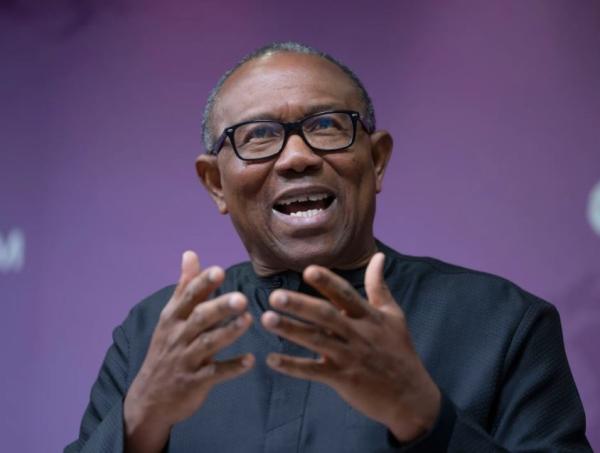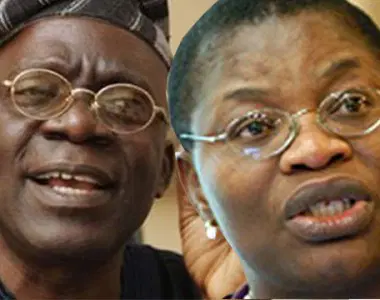
The Revenue Mobilisation Allocation and Fiscal Commission is considering reviewing the salaries of political office holders in Nigeria.
This was disclosed at a press briefing in Abuja on Monday, August 18.
RMAFC Chairman, Mohammed Shehu, stated at the briefing that President Bola Tinubu presently earns N1.5m monthly, while ministers receive less than N1m — figures that have remained unchanged since 2008.
Shehu said: “You are paying the President of the Federal Republic of Nigeria N1.5m a month, with a population of over 200 million people. Everybody believes that it is a joke.”
He added, “You cannot pay a minister less than N1m per month since 2008 and expect him to put in his best without necessarily being involved in some other things. You pay either a CBN governor or the DG ten times more than you pay the President. That is just not right. Or you pay him [the head of an agency] twenty times higher than the Attorney-General of the Federation. That is absolutely not right.”
However, the Nigeria Labour Congress kicked against the plans by the RMAFC to review upward the salaries of political office holders, saying the proposal ignores the country’s worsening inequality and the hidden perks that already inflate earnings in government.
At the press briefing in Abuja, the RMAFC boss stressed that the commission was not responsible for setting the minimum wage for civil servants or public sector workers, but was constitutionally mandated to determine the salaries of political, judicial, and legislative office holders.
“We are strictly restricted to political office holders, governors, senators, legislators, ministers, DGs, and other people,” he explained.
Shehu also noted that despite public hostility towards pay increases for politicians, it was important to maintain realistic remuneration that reflected their responsibilities.
“It’s about time that people like you and others should support the commission to come up with reasonable living salaries for ministers, DGs, and the President,” he said.
Shehu also announced that RMAFC had begun a long-overdue review of Nigeria’s vertical revenue-sharing formula, which determines how federally collected revenues are shared among the federal, state, and local governments. The current formula, which has been in place since 1992, allocates 52.68 per cent to the Federal Government, 26.72 per cent to states, and 20.60 per cent to local governments.
A further 4.18 per cent is reserved for special funds: 1 per cent each for the Federal Capital Territory and ecological fund, 1.68 per cent for the natural resources development fund, and 0.5 per cent for stabilisation.
“In line with this constitutional responsibility and in response to the evolving socio-economic, political and fiscal realities of our nation, the Commission has resolved to initiate the process of reviewing the revenue allocation formula to reflect emerging socio-economic realities,” Shehu told reporters.
He explained that recent constitutional amendments had expanded the fiscal burden of state governments.
“The situation has made it essential to re-evaluate the structure of fiscal federalism in order to foster economic growth in individual states, enabling them to become independent from the central government and ensuring equity, responsiveness, and sustainability,” he said.
Shehu recalled that previous efforts to adjust the formula were unsuccessful. The Commission had presented a report in 2022 under former Chairman Elias Mbam recommending 45.17 per cent for the Federal Government, 29.79 per cent for states, and 21.04 per cent for local governments.
However, the proposal was never implemented by the Muhammadu Buhari administration. The revenue sharing formula, which has remained a controversial subject in Nigeria even before independence in 1960, refers to the proportion of resources accruing to the federation that goes to each of the components of the nation.
It also defines the proportion of resources that must be retained in the territories where they are generated as well as what goes to the agencies of government that collect the revenues on behalf of the federation.
The current revenue formula was designed during the tenure of former president, Olusegun Obasanjo. Since then, there have been calls and attempts to change this formula to ensure equitable distribution of the accrued revenue.
Back on 2013, RMAFC embarked on a nationwide consultation with the 36 states and met with notable figures with a plan to review the formula.
Investigation showed that the politics and the eventual consequence of the Federal Government losing its fat allocation of the federation account are responsible for the delay in completing the process for the implementation of the new revenue formula.





















